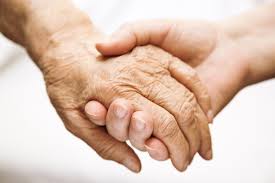
Mrs. Chaya Lasson is Program Manager at Gilchrist Jewish Hospice Program. Here, she explains the concept of hospice and its benefits to families.
Emma Michelsohn: How would you define hospice to someone unfamiliar with it?
Chaya Lasson: It’s important to know that hospice is not a place but a philosophy. It is a specialized type of personalized care that is completely centered around the needs of the patient and the patient’s family. The main idea is that care should be personal as each patient has a situation that it completely unique to him or her alone. With hospice, a collaborative and interdisciplinary team addresses the patient’s physical needs – the hospice’s medical staff are experts at pain management – and in addition, tend to the emotional and spiritual needs of the patient and the patient’s family. This kind of inclusive care is so helpful to the patient and their loved ones, and it is unique to hospice care.
EM: When you say it’s a philosophy, does that mean that there are no hospice facilities?
CL: Gilchrist has three inpatient centers, one in Towson and one in Howard County for those who need critical care, and one in Baltimore City, which is a residential facility. They are designed to be homey rather than like a medical facility. But, actually, most hospice patients reside at home. They are cared for by a personal team made up of a doctor, nurse, hospice aid (nurse aid), social worker, and a chaplain/rabbi. Having a rabbi involved helps the family make the most difficult decisions. In addition, a volunteer makes sure the patient is comfortable and that all of his or her needs are met.
EM: Whom do you treat? How does one qualify to get hospice care?
CL: Patients qualify for hospice care if they are diagnosed as terminally ill with six months or less to live. They must receive a certificate of terminal illness (CTI) that is signed by two doctors. Of course, no one can know how long anyone has to live, and studies have shown that hospice care can increase longevity of a critically ill patient’s life compared to aggressive care in the ICU.
EM: What’s the age range for hospice care? Who can benefit from this kind of care?
CL: Hospice care helps patients of any age, even infants and their parents. But for those ages 65 and up, there is a program called Care Choices. Medicare created it as a five-year trial program that is available nationally. Gilchrist is the only hospice in Baltimore that was selected to be a part of the program. It is designed to add extra benefits for patients who meet hospice eligibility guidelines but continue to seek curative treatments. It provides added care in the homes by the hospice team and can be beneficial for those at high risk of hospital readmissions.
EM: So how exactly is Care Choices different than regular hospice care?
CL: When starting hospice, a patient is required to sign off on stopping all curative treatment. Care Choices is an incredibly important new development that offers patients the option to continue curative treatment which may be important to them – especially if a new trial drug becomes available. This way they can continue their treatments while still benefiting from everything hospice care has to offer. There are no restrictions for ongoing, disease-modifying treatments while in the Care Choices program.
EM: Thank you so much for telling me about hospice. Are there any last thoughts you’d like to share with the community?
CL: Yes, thank you. We are so fortunate to have a Jewish hospice program in Baltimore and are thankful to the many donors who have made it possible. There are many myths surrounding hospice care. It is so important for families and patients to educate themselves in order to make informed decisions about the best care and the best options for those facing serious illness.
For any questions about the services Gilchrist offers, call the Care Navigation Center at 888-823-8880 or go to Gilchristcares.org for more information. For the Jewish Hospice call Chaya Lasson R.N., Jewish Hospice Program Manager at Gilchrist: 443-388-0311.






